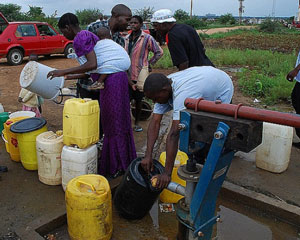
Water is a human right as defined under Resolution 64/292, of the United Nations General Assembly.
THE STANDARD EDITORIAL
The resolution stipulates that water is essential to the realisation of all human rights and it should not only be accessible and safe, but must be affordable.
It is unfortunate that the body charged with managing water affairs in this country and the parent ministry of environment, water and climate are about to negate this right.
At a time when water is a very scarce commodity, the ministry and Zimbabwe National Water Authority (Zinwa) have conspired to put spanners in the works of bulk water suppliers.
They have imposed a ban on bulk water abstraction from boreholes in residential areas and directed them to obtain water from Zinwa’s points in Dema, Nyabira, Parerehwa, Gwebi and Juru. Here they will be levied US$3 for 1 000 litres of water and the revenue generated from this activity will be shared with the ministry and sub catchment councils.
One doesn’t need to be an environmental specialist to notice that our broke government, which is desperate to raise cash, is not motivated by the need to protect the environment, but has seen an opportunity to make money out of it.
The truth of the matter is that no studies have been carried out to enable a scientific conclusion to be reached that the activities of the bulk water supplies are harming the ground water sources when construction activities are allowed on wetlands.
- Chamisa under fire over US$120K donation
- Mavhunga puts DeMbare into Chibuku quarterfinals
- Pension funds bet on Cabora Bassa oilfields
- Councils defy govt fire tender directive
Keep Reading
What is clear is that, the ban will have a devastating impact on consumers and water suppliers, who stepped in to help the situation after the city council and Zinwa failed to ensure constant water supplies were available.
If clean and safe water was consistently flowing from the taps, there would have been no business for the water suppliers, and it is disheartening that Zinwa, and the ministry are keen to disrupt a system that was working well.
Both Zinwa and the ministry should reverse this decision which will drive upwards the cost of water and result in the precious liquid being sold on the black market.










